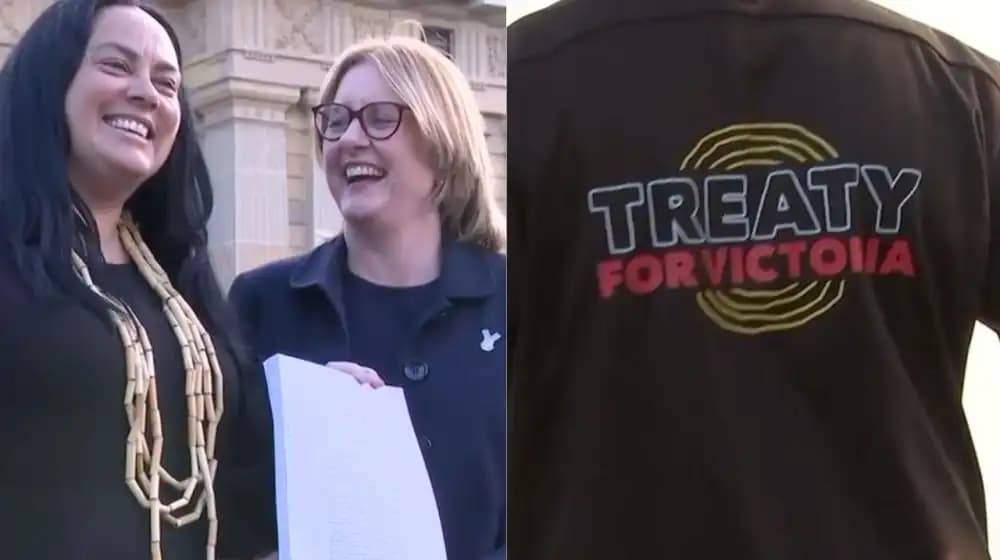We're loading the full news article for you. This includes the article content, images, author information, and related articles.
The historic legislation, a first for Australia, establishes a framework for negotiating treaties with First Peoples, a move with global significance for Indigenous rights and reconciliation that contrasts with stalled processes elsewhere in the nation.

GLOBAL – The parliament of Victoria, Australia, has passed a historic law to formalise a treaty-making process with its Indigenous population, a first for the nation that sets a new precedent for reconciliation. The Statewide Treaty Bill passed the state's upper house late on Thursday, 30 October 2025, by a vote of 21 to 16, culminating a process that began nearly a decade ago. The legislation was celebrated by First Peoples leaders as a pivotal moment in acknowledging past injustices and empowering Aboriginal communities to shape their own futures.
The passage of the bill, which occurred just before 11:00 PM EAT (9:00 PM in Melbourne), was met with applause from the public gallery, where Aboriginal and Torres Strait Islander flags were unfurled. Premier of Victoria, Jacinta Allan, stated the law gives Aboriginal communities the power to influence policies and services that directly affect their lives, aiming to create a "fairer, stronger Victoria for everyone."
At the heart of the legislation is the establishment of the First Peoples' Assembly of Victoria as a permanent, democratically elected representative body. This body will operate under a new statutory corporation named Gellung Warl, a term from the Gunaikurnai language meaning "tip of the spear." Gellung Warl will have the authority to advise the government, question ministers, and must be consulted on laws and policies relevant to First Peoples. However, it will not possess veto power over legislation.
The co-chairs of the First Peoples' Assembly, Ngarra Murray and Rueben Berg, hailed the event as the dawn of a new era. "This is a historic moment for our people," Murray said following the vote. "Treaty marks the beginning of a new era, one where First Peoples' 60,000 years of knowledge and culture is respected and celebrated." Berg emphasised the practical implications, stating that the treaty will enable Aboriginal people to use their expertise to deliver solutions in critical areas like health, education, housing, and justice.
The treaty process in Victoria is a multi-faceted approach to reconciliation that stands in contrast to the rest of Australia, which is one of the few Commonwealth countries without a national treaty with its Indigenous peoples. The Victorian framework is built on the principles of self-determination, truth-telling, and shared decision-making. The process formally began in 2016 and led to the Advancing the Treaty Process with Aboriginal Victorians Act 2018. An independent Treaty Authority, designed to act as an impartial 'umpire' during negotiations, was established in 2022.
The newly passed bill also enshrines mechanisms for continued truth-telling, building on the work of the Yoorrook Justice Commission, a formal inquiry into historical and ongoing injustices against First Peoples in Victoria. Commitments under the agreement include reshaping the school curriculum to incorporate these truths, delivering a formal apology in parliament, and increasing the use of traditional place names.
Despite its passage, the treaty's future is not guaranteed. The process, which once had bipartisan support, now faces staunch opposition from the state's conservative Liberal-National Coalition. The opposition withdrew its support following the failure of the national 2023 referendum on a federal Indigenous Voice to Parliament. The Victorian Coalition has pledged to repeal the treaty legislation within 100 days if it wins the next state election, scheduled for November 2026. They propose instead to establish a government department called First Nations Victoria with an unelected advisory body.
This political division reflects a broader national trend where progress on Indigenous treaties and reconciliation has stalled or been reversed in other states, such as Queensland, following the referendum's defeat. Proponents of the treaty, like Premier Allan, have criticised the opposition's stance as a move to "tear down the future." The First Peoples' Assembly has asserted that the era of "paternalistic governments making decisions on behalf of our people ends with this treaty."
While the events in Victoria have no direct policy implications for Kenya or East Africa, they offer a significant case study in post-colonial reconciliation and the recognition of Indigenous rights. The Victorian model, with its emphasis on a negotiated settlement, an independent oversight body, and a truth-telling commission, provides a framework that could be examined by nations grappling with historical injustices and the rights of minority or marginalised communities. The creation of a permanent, elected body to represent First Peoples in government processes is a noteworthy development in international governance and Indigenous affairs. The outcome of this landmark legislation and its resilience against political challenges will be closely watched globally by those invested in justice, reconciliation, and self-determination for Indigenous populations.
Keep the conversation in one place—threads here stay linked to the story and in the forums.
Sign in to start a discussion
Start a conversation about this story and keep it linked here.
Other hot threads
E-sports and Gaming Community in Kenya
Active 9 months ago
The Role of Technology in Modern Agriculture (AgriTech)
Active 9 months ago
Popular Recreational Activities Across Counties
Active 9 months ago
Investing in Youth Sports Development Programs
Active 9 months ago